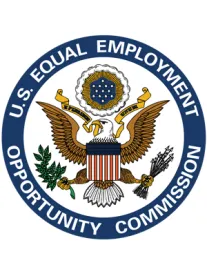Much of the business community, along with the rest of the country, was taken by surprise by the CDC guidance regarding mask wearing issued on May 13, 2021. It was unclear how the new guidance, subsequently adopted in many states, would impact public-facing private businesses, which under the guidance clearly had the option to apply different rules in their workplaces, but which faced clear practical problems in doing so in the form of pushback (verbal or physical) from customers who were told by the government that they could forego mask wearing. However, competing concerns about safety of employees, particularly in workforces with low immunization rates, have led to demands from the business community for guidance. In partial response, on May 28, 2021, the EEOC updated its guidance concerning the application of equal employment opportunity (EEO) laws to pandemic-related employment policies.
The EEOC made clear that federal EEO laws do not prevent employers from requiring that employees be vaccinated before physically entering the workplace, so long as the employer applies the policy equally under Title VII and allows reasonable accommodations for Americans With Disabilities Act (ADA), religious, and pregnancy issues. A mandatory vaccination policy has not been implemented widely in most workplaces as of yet, and it is possible that employers will not make vaccination mandatory until the vaccines receive full, rather than emergency use, FDA approvals. Employers, however, can certainly start discussing their intent to mandate such vaccinations along with incentives to employees (as limited below) to obtain the vaccine earlier than required.
The EEOC’s May 28 guidance also specifically gives employers the green light to offer incentives for employees to obtain their vaccination from a third party and to require employees to provide proof of vaccination (when permitted by state law). Employers may also offer incentives for employees to obtain vaccines administered by the employer, so long as the incentives are not so large as to be coercive and provided the employer avoids unduly pressuring employees to provide disability-related information to the employer in connection with receiving the vaccine. In all cases, the employer must keep vaccination information confidential under the ADA, and employers should not request family medical information or genetic information in connection with any vaccination program or incentive program, which is prohibited under the Genetic Information Nondiscrimination Act.
Given that some employers wish to see a critical percentage of their workforce vaccinated before letting employees return to servicing an unmasked public, the EEOC’s guidance is significant.




 />i
/>i

